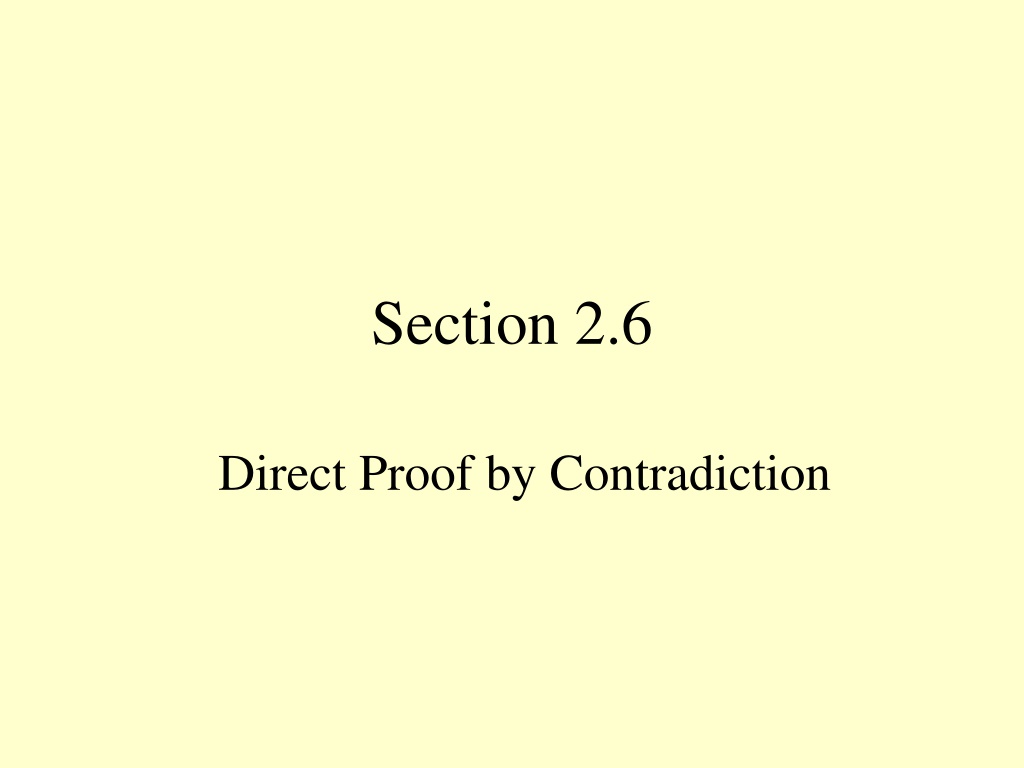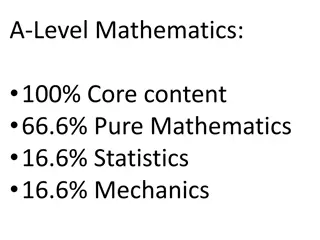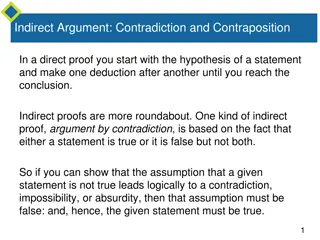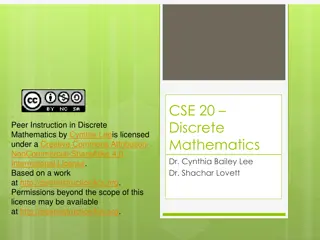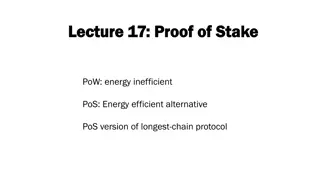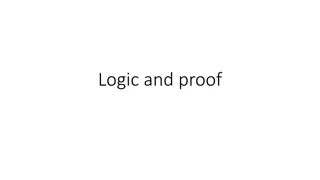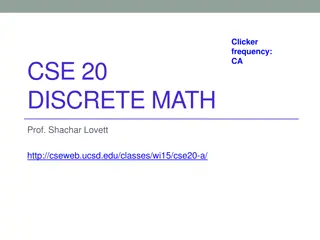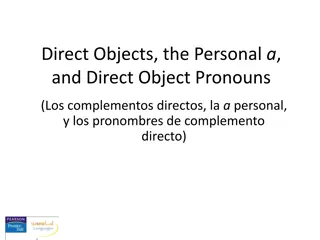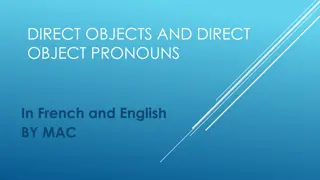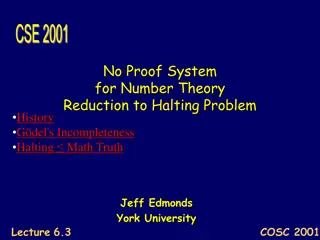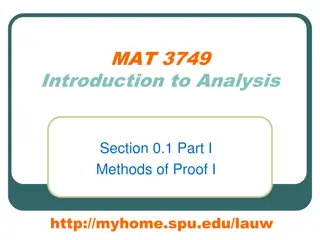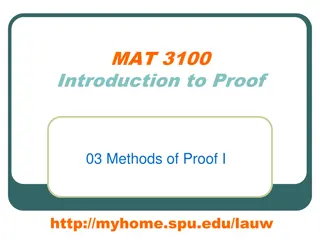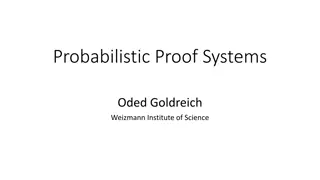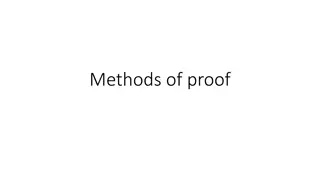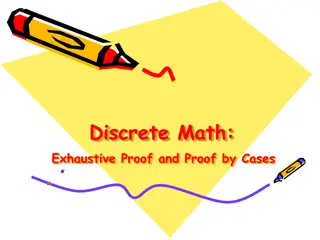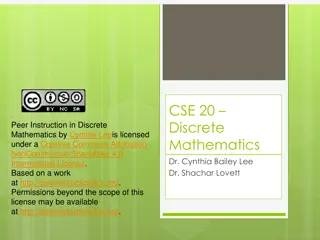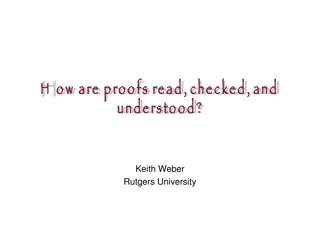Direct Proof by Contradiction in Mathematics
Learn about direct proof by contradiction in mathematics, including the process, examples, and applications. Understand how to prove statements by assuming their negations and deriving a contradiction to establish the original statement's truth.
Download Presentation

Please find below an Image/Link to download the presentation.
The content on the website is provided AS IS for your information and personal use only. It may not be sold, licensed, or shared on other websites without obtaining consent from the author. Download presentation by click this link. If you encounter any issues during the download, it is possible that the publisher has removed the file from their server.
E N D
Presentation Transcript
Section 2.6 Direct Proof by Contradiction
Review: Proof by contraposition Express the statement in the form: x , if P(x) then Q(x) Rewrite this statement in the contrapositive form: x , if not Q(x) then not P(x) Prove the contrapositive in a direct proof
You try Prove: For all integers if x y is odd, the x is odd or y is odd.
More practice Prove: If x and y are two integers for which x+y is even, then x and y have the same parity. DEFINITION - Two integers are said to have the same parity if they are both odd or both even. Prove: If the sum of two real numbers is less than 50, then at least one of the numbers is less than 25.
Proof by Contradiction Another tool for direct proof is Proof by Contradiction. Introduction: If A is true, what do you know about A ? If A is false, what do you know about A ? If A is false, what do you know about A?
Proof by Contradiction 1. Suppose that the statement is false. That is, suppose the negation of the statement is true 2. Show that this new supposition leads to a contradiction. 3. Conclude that the original statement must be true.
Examples of this technique There is no greatest integer
Examples of this technique There is no integer that is both even and odd
Examples of this technique If 3n+2 is odd, then n is odd [Hint, be careful writing the negation of this statement].
